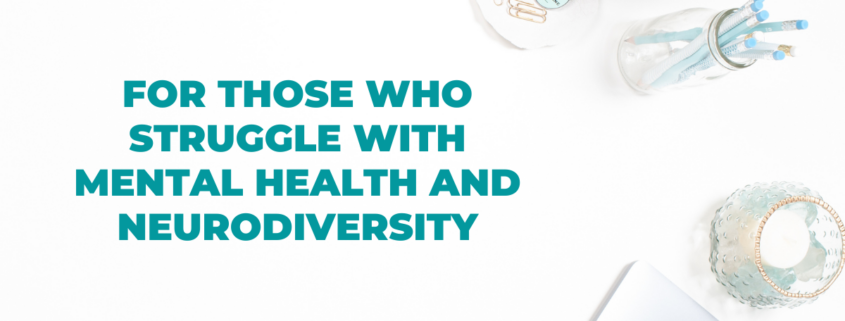For those who struggle with mental health and neurodiversity
Navigating entrepreneurship with neurodiversity and mental health challenges is a double-edged sword.
For some context, I found out at the age of 42 (almost six years ago) that I have ADHD. I’ve also struggled with anxiety and at times depression throughout my adult life.
Many qualities that make you an excellent entrepreneur come with related challenges and deficits.
Entrepreneurs also deal with mental health issues at a higher rate than the average population.
So how can you thrive?
One of my favorite podcast interviews (and I’ve done hundreds) was with my friend Rebecca Ching on The Unburdened Leader podcast a few years ago.
We discussed mental health and entrepreneurship; I shared things I’d never shared.
Here’s one insight that can help if you struggle with neurodiversity as an entrepreneur.
“I finally came to the realization that if I got rid of all the things that frustrate me about my ADHD, I would also lose other traits and strengths that I depend on and my clients depend on–
…strengths that help me see patterns and have intuitive hits.
The strengths and struggles are two sides of a of a coin. They come as a package.”
I can learn to recognize and leverage my strengths.
I can learn to recognize and embrace the accompanying challenges equally.
Then, I can manage them with habits, routines, systems, and…
Self-compassion
I’ve long struggled with anxiety, difficulty focusing, self-doubt, and, at times, what I can only describe as existential dread that accompanies living with ADHD combined with continuous mental health challenges.
I don’t share that for sympathy. I share my experience despite the stigmas, potential judgments, and shame because it’s vital to share our stories to normalize our experiences, increase our awareness, and improve our ability to care for ourselves and others.
I didn’t learn about my family’s history of depression and anxiety until my mid-20s. I didn’t realize I had ADHD until my 40s.
What helped me more than anything was listening to stories from people like me about how they struggled, learned, adapted, and persevered.
I hope my interview with Rebecca will offer you insights into your experience.
I’m sharing this in honor of Neurodiversity Week and the 100th episode of Rebecca’s excellent podcast, which is infused with wisdom to help leaders navigate struggle and growth to lead at their best while minimizing burnout and loneliness.



